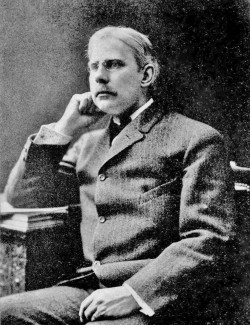
Johns Hopkins UniversityEst. 1876
America’s First Research University
National Author’s Day

In a world in which an entire website is dedicated to the cataloging of official and unofficial days of observance, and each day of the Gregorian calendar is shared by several such pseudo-holidays, do we over-emphasize the promotional and the hashtag-able? When our social media coordinator asked me to write about #NationalAuthorsDay, I was curious to know just who created the holiday, when, and for what purpose. Was it to recognize creative writers especially? Did a clever publisher declare the day of observation in a publicity stunt? What exactly was I signing up to chronicle on our Press blog?

An historian might draw certain conclusions about the uniquely patriotic American aspect of the holiday, or its roots in the women’s movement, but I want to pay special attention to the exchange that brought National Author’s Day about, namely a conversation. Without knowing the content of McPherson’s letter to Bacheller, we can’t be certain what she appreciated most about “Eben Holden,” whether it was the plot, the characters, Bacheller’s craft as a writer, or how it made her feel when she read it. What we do know is that McPherson was deeply touched by Bacheller taking the time to respond to her letter, and thus her dedication of Author’s Day is an appreciation for authors who engage with their readership.
This dialogue between authors and readers is one we recognize in many forms in scholarly publishing. From peer review to book reviews in academic journals, from conference talks to revised and updated editions of well-regarded works, scholarly authors and their readers participate in an ongoing exchange of ideas. Even down to the very back matter of books, the notes and references, we see scholars putting their own texts in conversation with the works of academics who came before them, responding to and expanding upon existing research. Indeed, no scholarly author creates new work in a void.

Now, as an editor, I consider proposals and manuscripts and think endlessly about market and audience for each project that passes my desk. But it would be a mistake to conceive of that audience as in any way passive, just as it would be a mistake to understand authorship as a solitary vocation. So, on this National Author’s Day, I’d like to pay as much recognition to the hardworking authors whose books we publish as I would to the active readers who equally participate in this written exchange that keeps our quest for knowledge in motion.

Catherine Goldstead is assistant editor for literary studies at Johns Hopkins University Press. You can follow her on Twitter @cgoldstead.


